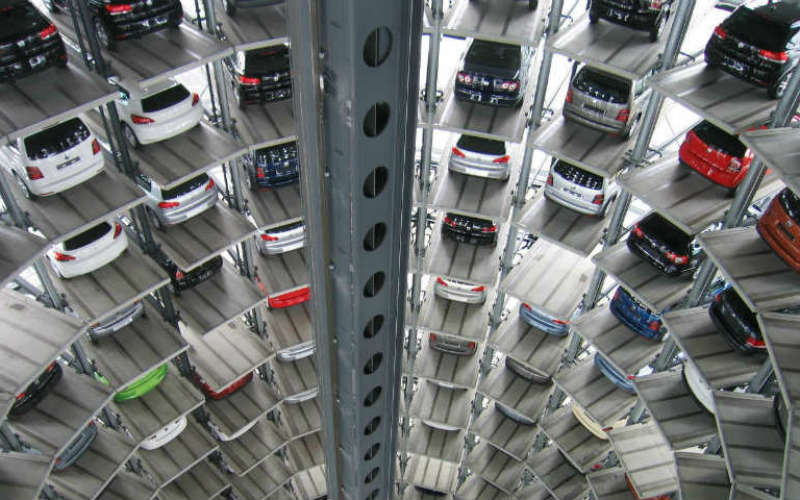The buy or lease conundrum is one that can confront businesses of all sizes across many types of industries. It doesn’t just involve vehicles either. It can also apply to plant or equipment, but this article will focus on vehicles, an essential element to the smooth running of many enterprises.
First up, let’s be clear on what the alternatives actually mean:
-
Leasing is when you essentially rent the vehicle from a leasing company that owns it.
-
Buying means the business pays for and owns the vehicle outright. You may do this through a loan or pay upfront through business funds.
See also: How to apply for a business car loan
Types of car leases
For businesses, there are several different leasing options:
Operating lease
An operating lease is essentially like a rental agreement in that you only pay for the use of the vehicle. A leasing company will purchase the vehicle and take it back at the end of the lease term.
To take out an operating lease, the business will agree to a fixed price for the term of the lease which will include all the essential operating costs. Operating leases generally come with shorter terms, also providing the opportunity to upgrade regularly.
Finance lease
Finance leases differ in that the leasing company will purchase the vehicle on your behalf and you pay monthly instalments, or rental payments, that go towards eventual ownership of the vehicle.
At the end of the lease, the business can pay out the remaining value of the vehicle and ownership will be transferred. This can often suit businesses looking for equity in their vehicles and longer lease terms. Alternatively, businesses can renew the lease and upgrade to a newer model vehicle.
Novated lease
Novated leasing is an employee benefit lease scheme whereby a business deducts lease payments from an employee's pre-tax salary for a vehicle of the employee’s choosing and associated expenses. Under a novated lease, the employee can also use the vehicle for personal use. Not only does this effectively reduce an employee’s taxable income but also the business’s taxable income as it reduces payroll tax. However, it will likely see the business hit with a fringe benefits tax.
The business can offer the arrangement as an employee benefit through a leasing or finance company of its choice. For businesses, it can shift responsibility for vehicle-related expenses onto employees rather than the business having to pay for and administer a fleet.
The decision to offer novated leases through your business needs to be carefully considered. It may suit some businesses more than others, particularly those where employees are required to travel extensively and have an interest in taking up the benefit. There is also some administration required with novated leasing arrangements so it can suit larger businesses more than smaller ones.
Pros and cons of leasing a car for your business
While many businesses choose to lease their vehicles, it doesn’t mean it should be an automatic choice for all businesses. Choosing to buy or lease a vehicle should depend on your business’s needs and financial circumstances.
Leasing pros
1. No big upfront payment
One of the biggest advantages of leasing a car is that your business’s cash reserves don’t have to take a hit. Many businesses lease vehicles because it better suits their cash flow needs. Even taking out a loan to buy a vehicle can require an upfront deposit the business might have trouble coming up with.
2. Keeps your vehicles updated
Many businesses that lease vehicles turn them over at the end of the lease period for a newer, or perhaps different, model. Under lease arrangements, it also means they don’t have to worry about selling the old vehicles to do it.
3. Vehicle payments consolidated
The majority of lease agreements will combine the cost of purchasing the vehicle as well as operating expenses such as registration, maintenance, and insurance into one repayment. This can effectively average out vehicle expenses over the course of a tax year and ensure the business cash flow is not peppered with ongoing vehicle bills, easing the pressure on business cash flow. It can also make for much easier accounting come tax time. Some lease agreements can cover some repair costs to the vehicle as well.
4. Tax advantages
The business can claim tax deductions on vehicle expenses when it is being used to generate income for the business. If the vehicle is also being used for non-business purposes, you’ll need to keep records to ensure you are accurately claiming a tax benefit.
Leasing cons
1. Business does not own the vehicles
In the legal sense, the business does not own the vehicles so they can’t be counted as an asset for borrowing or other financial purposes. The business is also not at liberty to make any modifications to the vehicle without getting approval from the leasing company. These may not always be agreed to.
2. Payments continue even if you no longer need it
If your business no longer has a need for the vehicle, you will still have to make payments for the full lease period. If you choose to terminate the lease contract before it expires, you will likely face hefty charges. If you had purchased the vehicle, you would be able to sell it to recoup some funds.
3. Mileage restrictions
Some lease agreements come with mileage restrictions and if they’re contravened, extra fees can apply. Read to the fine print to ensure that any lease agreement meets the requirements of your business.
4. End-of-term payments
Some finance lease arrangements can come with substantial end-of-lease payments that need to be budgeted for. An alternative can be to renew the lease and upgrade to a newer vehicle.
Pros and Cons of Buying a car for your business
Buying pros
1. Choose what you want
When you purchase a vehicle yourself, you can buy exactly what you want rather than being limited by a leasing company’s stock.
2. The vehicle is yours
If you take out a car loan to purchase a vehicle, the repayments can be similar to the cost of leasing. However, at the end of the period, you will end up owning the car outright. You are also at liberty to modify the vehicle according to the requirements of the business.
3. Tax advantages
One benefit of buying a vehicle for your business is the ability to claim tax deductions against it. You may be able to claim a GST credit for its purchase and, in some cases, the business may be able to claim an immediate write-off for the business portion of the vehicle’s cost in the first year it is used. The vehicle will also be classed as an asset of the business which can be used to borrow against or for other financial purposes.
4. You can sell it when you want
If you no longer need the vehicle or your business changes direction, you can sell it whenever you want to recoup some of the costs of purchasing it.
Buying cons
1. Higher upfront cost
Generally, purchasing a vehicle will come with a higher upfront cost than leasing one. Even if you take out a loan to pay for it, you will generally be required to come up with a deposit which may see the business having to dip into its cash reserves.
2. Responsibility for repairs and maintenance
The business will need to pay for repairs and maintenance not covered by warranty or insurance. Managing these can also be an added impost on the business. The business also needs to factor in other admin costs and responsibilities such as keeping up insurances, roadside assistance membership, fuel accounts, and regular vehicle servicing.
3. Upgrades more expensive, difficult
To upgrade a vehicle purchased through the business, you need to sell it and repurchase another. This can be a time-consuming process and may not always provide the best financial outcome. Through a lease agreement, upgrades can be automatic at the end of a lease term and may take place with little additional outlay.
4. Depreciation
The value of your vehicle will depreciate, making it less valuable over time. If you lease a vehicle, its loss in value is borne by the leasing company rather than your business.
5. Repossession risk
If you have taken out a loan using the vehicle as security, it can be repossessed if you fail to make repayments. This can have a damaging effect on the business operations at a time when they’re likely already under pressure.
6. Fringe Benefits Tax
Although there are tax benefits for businesses purchasing vehicles, when an employee uses a business-owned car for private purposes, it attracts Fringe Benefits Tax (FBT) payable by the business. In trying to minimise FBT, it can also limit the choice of vehicles to those classifiable as ‘commercial’ for taxation purposes.
Savings.com.au’s two cents
As with many business decisions, there is no right or wrong answer. Ultimately, the decision of whether to purchase or lease your business’s vehicles should depend on the needs and logistics of your business. Your accountant is a good person to turn to for advice concerning the financial and taxation implications of both alternatives. They may set out a case that presents one option as clearly preferable for your circumstances.
Many larger corporations choose to lease their vehicles although it may not always be the best option for all small- to medium-sized businesses. The federal government’s business advisory website business.gov.au provides a good source of reliable, unbiased information on whether to lease or buy vehicles and other business equipment.
It’s a good idea to work out beforehand how much you can afford to pay in lease or loan payments each month. Before you sign on any dotted lines, research the finance and/or leasing companies you are dealing with to ensure they’re reputable and will be easy to deal with. Also make sure you put some time into shopping around for the best loan rate or lease conditions and be sure to read through any contracts carefully or, better still, have your solicitor look over them for you.
Image by Why Kei via Unsplash
.jpg)


 Denise Raward
Denise Raward
 Harry O'Sullivan
Harry O'Sullivan

 Dominic Beattie
Dominic Beattie
 Harrison Astbury
Harrison Astbury

